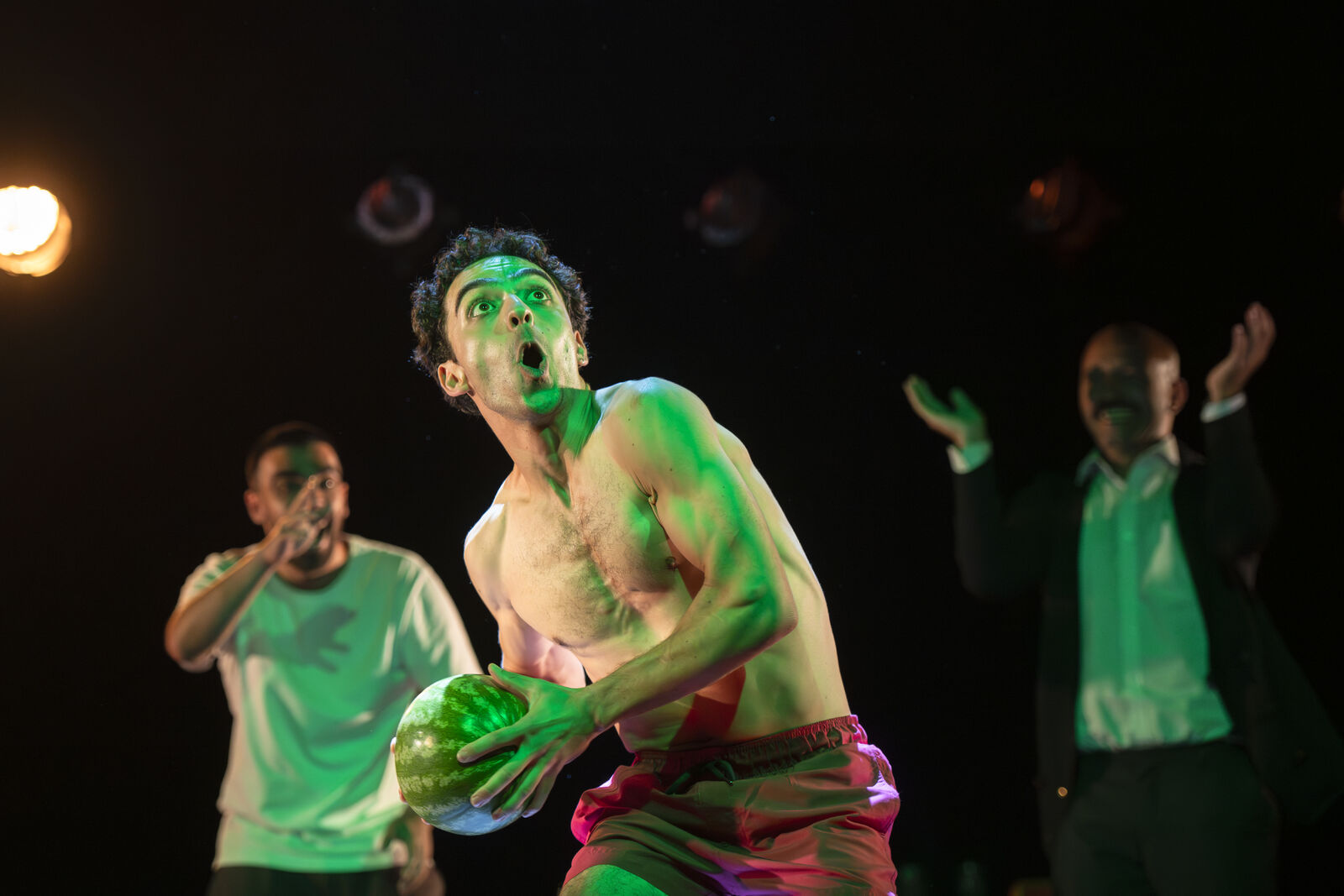In festival director Nicola Benedetti’s introduction to the Edinburgh International Festival, she describes theatre as holding “a mirror to our times.” Cutting the Tightrope is an attempt to do just that. A collection of short plays, written and performed in London last May at the Arcola Theatre, that explore themes of censorship and freedom of expression, specifically within the artistic community.
The plays were commissioned in response last year’s Arts Council England warning that organisations and artists making ‘political’ statements could breach funding agreements. Consequently, the production pointedly doesn’t provide names of the authors alongside each script or the names of the actors performing them. As fighting continues in and around Gaza, it’s no wonder that many of the writers were heavily influenced by this in their response.
The first of the plays, Watermelon 1, part of a trilogy that punctuates the evening, is a witty boisterous protest about symbolism and censorship. Some pieces locate the action in the world of either writing (a journalist is questioned by a playwright that she accuses of sidestepping uncomfortable truths inherent in Jewish history) or playwriting specifically (a writer pitches a play concept to a producer who claims it’s too harrowing to fly). Other pieces explore attempts to find a way to live with our consciences here as conflicts rage overseas (Empathy is Blind; Burger and Chips). The heartbreaking Florist of Rafah locates the action amidst the brutal turmoil. The gloriously staged 46 Women explores our ability to ignore sexism, racism, and misogyny right on our doorstep.
It sounds like heavy stuff, and much of it is, but it’s not relentlessly confrontational. There is levity and humour amidst the heartbreak. In Conversation I’m not in, a young man takes his girlfriend home to meet his parents for the first time. She’s an artist, an activist, and possibly also Muslim, a million miles away from their world. The only thing they can find to talk about that isn’t incendiary is the wine that she doesn’t drink.
The production is simply staged with the actors sitting around the performing space on benches encircling the stage when they’re not performing in a Brechtian gesture that entirely befits this type of theatre. The actors themselves bring the unique passion to their performances that’s born from a purpose they entirely buy into, resulting in a gripping night of energised theatre-come-activism.
As this piece of theatre is so specifically written for its (London) audience, some tiny elements of the content may jar Scottish audiences. But, as the fundamental premise of this collection of plays is exploring censorship in the light of global issues that it’s far easier to ignore, the relevance – as highlighted by the overhead captions – is glaringly obvious.


Comments